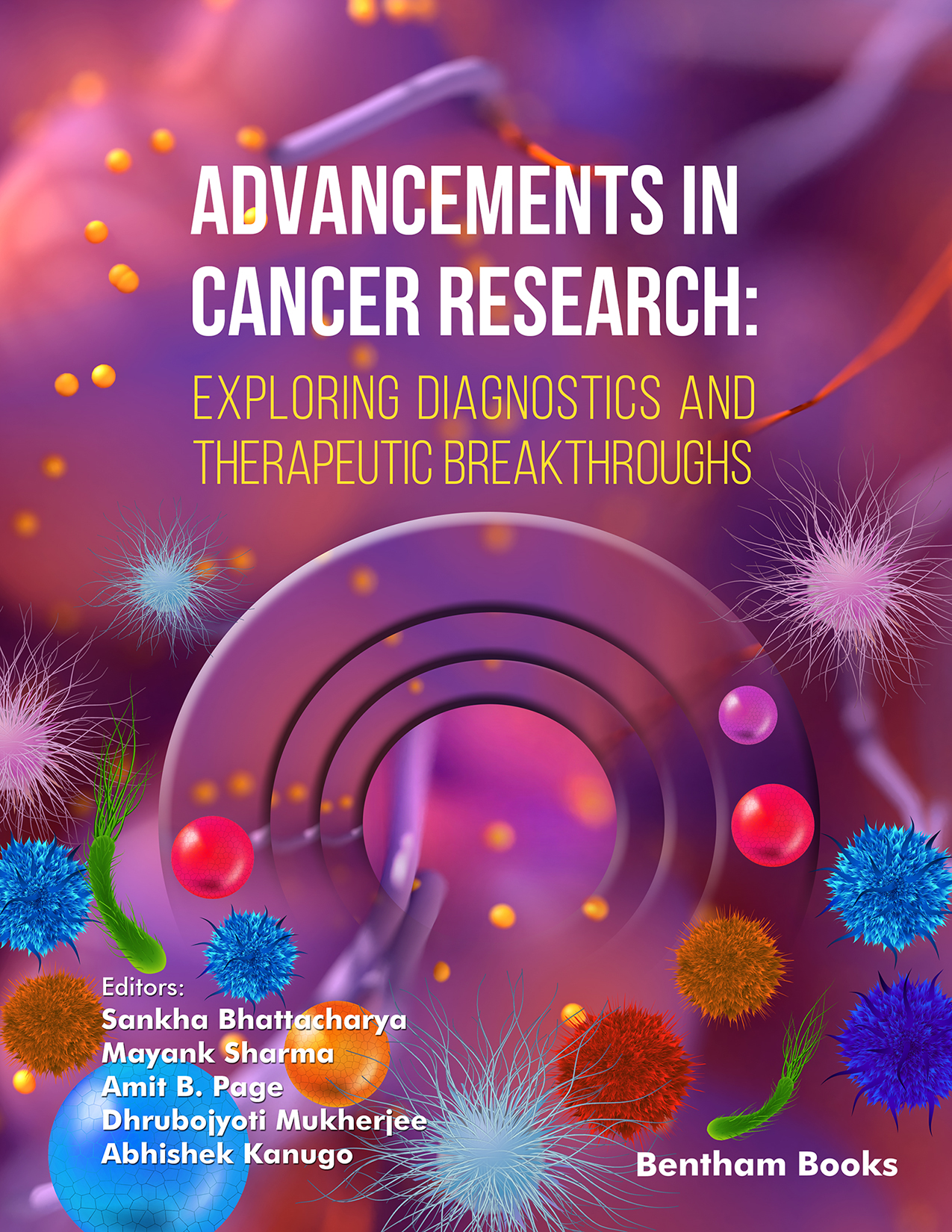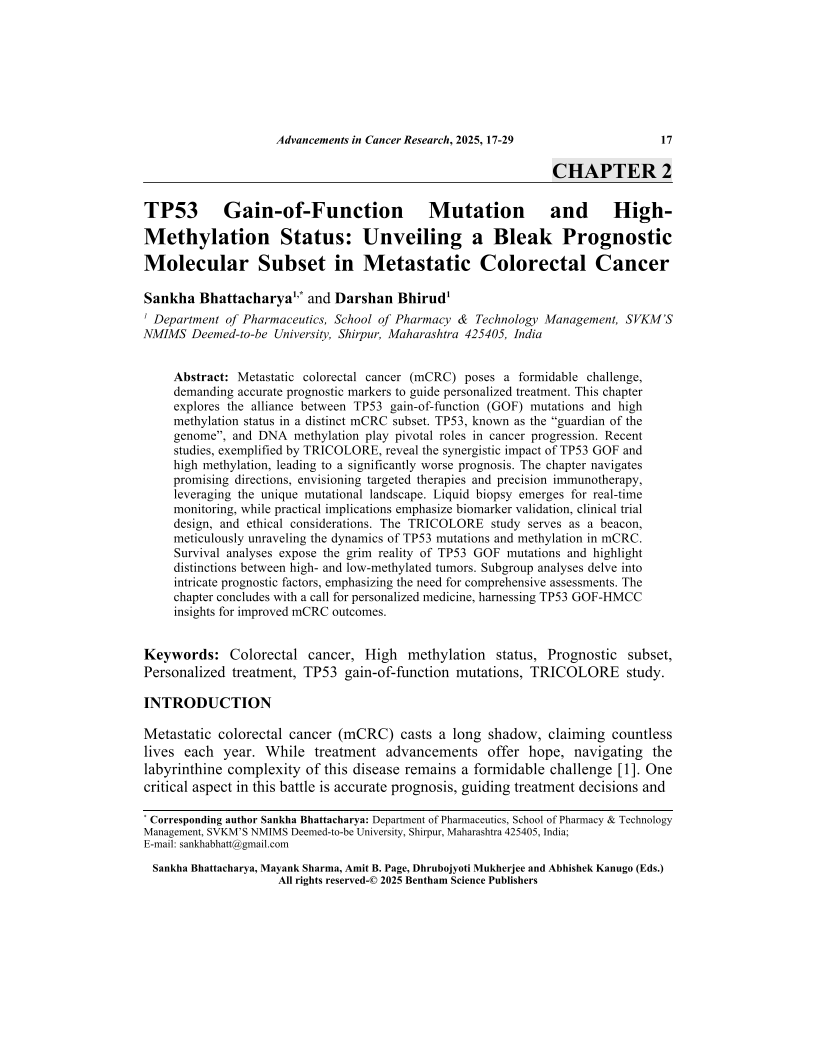TP53 Gain-of-Function Mutation and HighMethylation Status: Unveiling a Bleak Prognostic Molecular Subset in Metastatic Colorectal Cancer

- Authors: Sankha Bhattacharya1, Darshan Bhirud2
-
View Affiliations Hide Affiliations1 Department of Pharmaceutics, School of Pharmacy & Technology Management, SVKM'S NMIMS Deemed to-be University, Shirpur, Maharashtra 425405, India 2 Department of Pharmaceutics, School of Pharmacy & Technology Management, SVKM'S NMIMS Deemed-to-be University, Shirpur, Maharashtra 425405, India
- Source: Advancements in Cancer Research: Exploring Diagnostics and Therapeutic Breakthroughs , pp 17-29
- Publication Date: February 2025
- Language: English
TP53 Gain-of-Function Mutation and HighMethylation Status: Unveiling a Bleak Prognostic Molecular Subset in Metastatic Colorectal Cancer, Page 1 of 1
< Previous page | Next page > /docserver/preview/fulltext/9789815305906/chapter-2-1.gif
Metastatic colorectal cancer (mCRC) poses a formidable challenge, demanding accurate prognostic markers to guide personalized treatment. This chapter explores the alliance between TP53 gain-of-function (GOF) mutations and high methylation status in a distinct mCRC subset. TP53, known as the "guardian of the genome", and DNA methylation play pivotal roles in cancer progression. Recent studies, exemplified by TRICOLORE, reveal the synergistic impact of TP53 GOF and high methylation, leading to a significantly worse prognosis. The chapter navigates promising directions, envisioning targeted therapies and precision immunotherapy, leveraging the unique mutational landscape. Liquid biopsy emerges for real-time monitoring, while practical implications emphasize biomarker validation, clinical trial design, and ethical considerations. The TRICOLORE study serves as a beacon, meticulously unraveling the dynamics of TP53 mutations and methylation in mCRC. Survival analyses expose the grim reality of TP53 GOF mutations and highlight distinctions between high- and low-methylated tumors. Subgroup analyses delve into intricate prognostic factors, emphasizing the need for comprehensive assessments. The chapter concludes with a call for personalized medicine, harnessing TP53 GOF-HMCC insights for improved mCRC outcomes.
-
From This Site
/content/books/9789815305906.chapter-2dcterms_subject,pub_keyword-contentType:Journal -contentType:Figure -contentType:Table -contentType:SupplementaryData105

